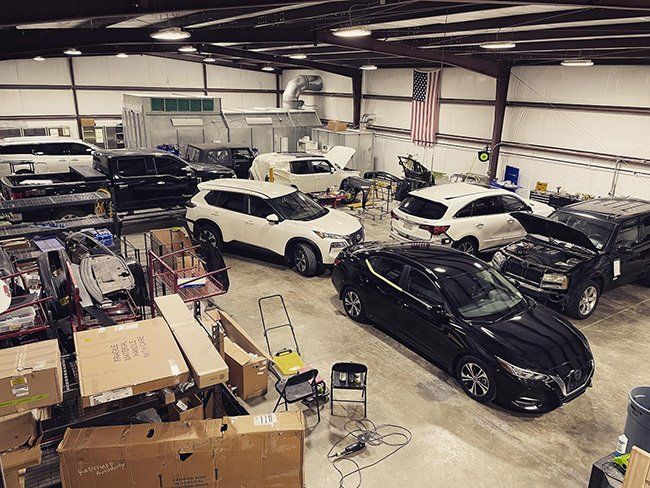How insurers use their own "prevailing rates & market practices" to cheap out on repairs

When dealing with auto collision repairs, it's crucial to understand how insurance companies determine what they pay on claims. They often use the concept of "prevailing rates and market practices" to control costs. However, this approach is inherently flawed due to the unique complexities of each repair, the varying quality of vehicle manufacturing, and the diverse levels of training, equipment, and knowledge among repair shops.
The Challenge of Defining "Prevailing Market Practice"
The term "prevailing market practice" refers to the common standards, procedures, and pricing typically accepted and followed by repair shops within a specific market or geographic area. However, defining this is far from straightforward due to several critical factors:
- Variation Among Shops: Each auto repair shop is unique. Differences in equipment, technology, and expertise mean that shops may approach repairs differently and charge varying prices. Some shops may not have the latest tools or training to follow modern repair procedures dictated by vehicle manufacturers.
2. Range of Practices and Prices: The variability in shop capabilities leads to a wide range of practices and prices within the market. As a result, it is challenging to establish a uniform "prevailing market price" for collision repair services in any given area.
3. Uniqueness of Repairs: Each vehicle and each repair job presents unique challenges. Differences in materials, manufacturing techniques, electronics, safety equipment, and paint colors mean that no two repairs are exactly alike. This uniqueness further complicates the determination of a standard market practice or price.
4.Insurer Assessments: Insurers may have their own views on what constitutes prevailing market practice. However, given the variability among repair shops and the unique nature of each repair, it is difficult to be certain that an insurer's opinion accurately reflects the true market conditions. The insurer's perspective might not fully account for the diversity of practices and prices within the industry.
Why This Approach is Unfair to Repair Shops
Shops should be compensated for repairs that restore a vehicle’s safety, functionality, and appearance, regardless of prevailing market practice according to Louisiana Advisory Letter 07-01 Repair Of Motor Vehicles - Statement Of Principles. The complexity of each repair and the uniqueness of each vehicle mean that a one-size-fits-all approach to pricing is inherently flawed. Some shops might be better equipped and trained than others, leading to a wide variation in what is considered "prevailing."
Moreover, an insurer's opinion on prevailing rates may not always align with the actual costs incurred by repair shops. The Louisiana Repair of Motor Vehicles - Statement of Principles emphasizes that shops should be compensated for necessary repairs to restore a vehicle to its pre-accident condition in terms of safety, functionality, and appearance, regardless of prevailing market practice.
In summary, while the concept of prevailing market practice aims to establish a benchmark for fair compensation in collision repair, the reality is that numerous variables make it difficult to pinpoint a single standard. Repair shops should advocate for fair compensation based on the actual work required to restore vehicles to their pre-accident condition, rather than a potentially inaccurate "prevailing" rate set by insurers. Understanding these complexities can help consumers make informed decisions and ensure that their vehicles receive the quality repairs they deserve.


Share On: